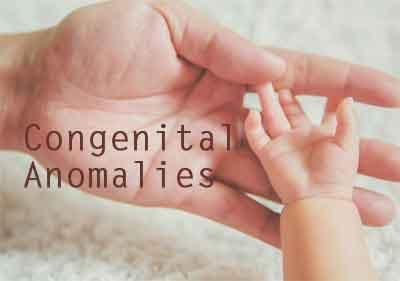- Home
- Editorial
- News
- Practice Guidelines
- Anesthesiology Guidelines
- Cancer Guidelines
- Cardiac Sciences Guidelines
- Critical Care Guidelines
- Dentistry Guidelines
- Dermatology Guidelines
- Diabetes and Endo Guidelines
- Diagnostics Guidelines
- ENT Guidelines
- Featured Practice Guidelines
- Gastroenterology Guidelines
- Geriatrics Guidelines
- Medicine Guidelines
- Nephrology Guidelines
- Neurosciences Guidelines
- Obs and Gynae Guidelines
- Ophthalmology Guidelines
- Orthopaedics Guidelines
- Paediatrics Guidelines
- Psychiatry Guidelines
- Pulmonology Guidelines
- Radiology Guidelines
- Surgery Guidelines
- Urology Guidelines
Link found between antidepressant use and congenital anomalies or stillbirths

Academics at Swansea University have carried out a dose-response analysis which suggests that pregnant women who take a specific type of antidepressant in early pregnancy have a small but significantly greater risk of having babies with major congenital anomalies (sometimes referred to as birth defects) or stillbirths compared with those who did not take these antidepressants.
Professor Sue Jordan, of the College of Human and Health Sciences led the international research team 1 of academics from the UK, Denmark and Norway. The study published in the PLOS ONE journal, analysed data from more than 500,000 infants in Wales, Norway and Denmark and found that women who had been prescribed selective serotonin re uptake inhibitors, known as SSRIs, in the first trimester of pregnancy or 3 months before pregnancy were at a small but significantly greater risk of having infants with congenital anomalies, particularly severe heart defects or stillbirths compared with those who did not take SSRIs.
The study found that where SSRIs were not prescribed, 6 in 200 pregnancies had an adverse outcome of stillbirth or a baby with a major congenital anomaly, but when SSRIs were prescribed this rose to 7 in 200. The team say this risk is of public health importance due to the severity of the outcome and because SSRIs are prescribed to 5.5% of pregnant women in Wales, 2.1% in Denmark and 1.6% in Norway.
Now, the researchers are calling on health care professionals to take the following action:-
- review all women requesting SSRI prescriptions and not just those who are planning pregnancy.
- consider women who misuse substances or alcohol as being at higher risk of adverse pregnancy outcomes when prescribed SSRIs
- evaluate pre-pregnancy care when SSRIs are prescribed
- consider offering at-risk women enhanced scans to detect serious heart defects
- ensure that appropriate levels of neonatal care are available to at-risk women at birth
Professor Jordan said: "To our knowledge, this is the first dose-response analysis that shows the link between SSRI doses and congenital anomalies and stillbirths. While this extra risk may seem small, in my view, the outcomes are as serious as they can be.
"Women should not stop taking SSRIs without consulting their doctors, and we are not saying stop all medicines, but our message is that we want our health care professionals to be very mindful of this link and to take the appropriate action to ensure that women are given the right type of care before, during and after pregnancy to minimise the risks of congenital anomalies and stillbirths linked to SSRIs."
Professor Helen Dolk, who led the EUROmediCAT project, said: "Women should not stop taking SSRIs without discussing with their doctor the benefits and risks of SSRIs and alternative non-pharmacological therapies, since good mental health is important for both mother and child."

Disclaimer: This site is primarily intended for healthcare professionals. Any content/information on this website does not replace the advice of medical and/or health professionals and should not be construed as medical/diagnostic advice/endorsement or prescription. Use of this site is subject to our terms of use, privacy policy, advertisement policy. © 2020 Minerva Medical Treatment Pvt Ltd